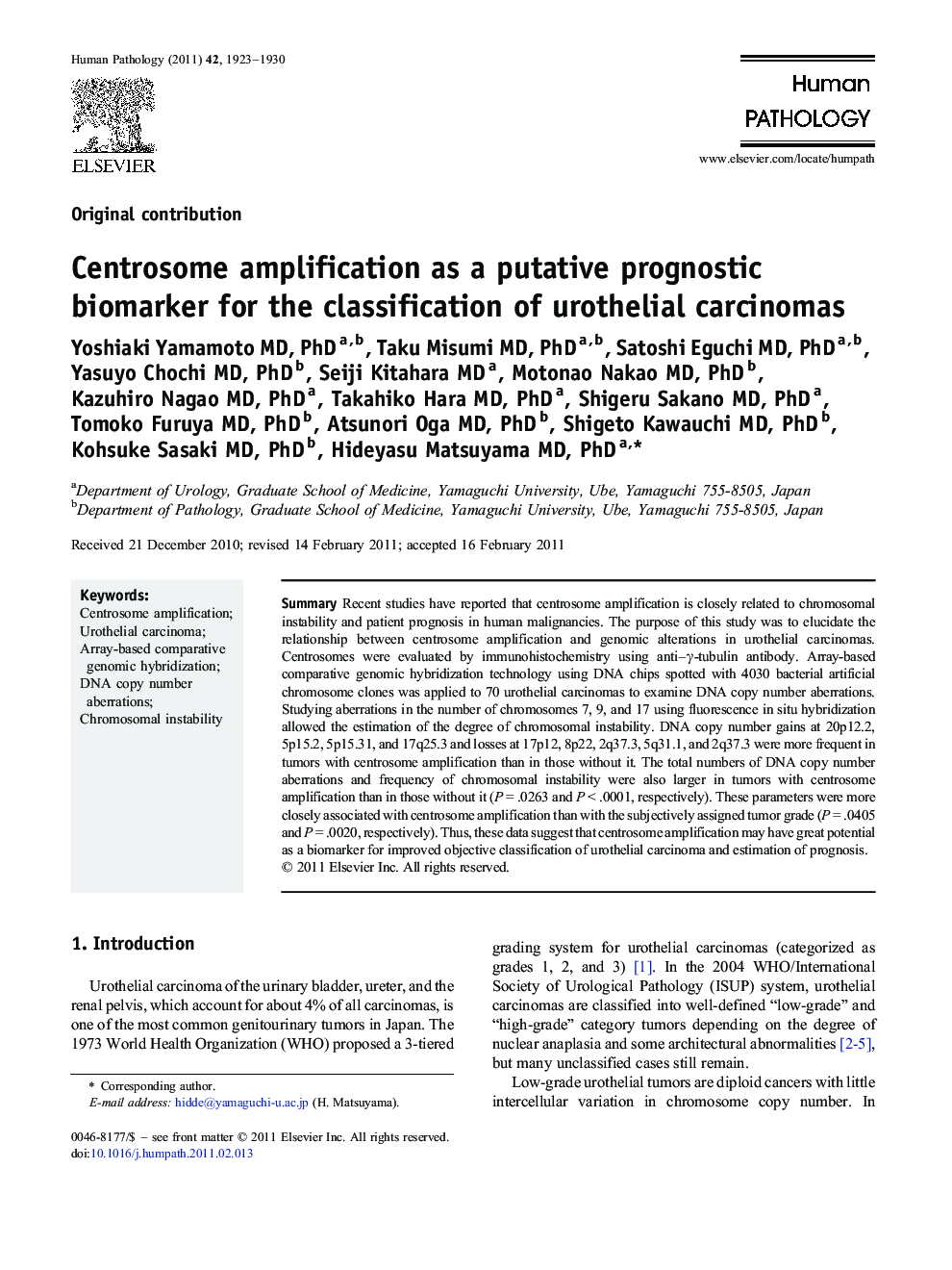| Article ID | Journal | Published Year | Pages | File Type |
|---|---|---|---|---|
| 4133886 | Human Pathology | 2011 | 8 Pages |
SummaryRecent studies have reported that centrosome amplification is closely related to chromosomal instability and patient prognosis in human malignancies. The purpose of this study was to elucidate the relationship between centrosome amplification and genomic alterations in urothelial carcinomas. Centrosomes were evaluated by immunohistochemistry using anti–γ-tubulin antibody. Array-based comparative genomic hybridization technology using DNA chips spotted with 4030 bacterial artificial chromosome clones was applied to 70 urothelial carcinomas to examine DNA copy number aberrations. Studying aberrations in the number of chromosomes 7, 9, and 17 using fluorescence in situ hybridization allowed the estimation of the degree of chromosomal instability. DNA copy number gains at 20p12.2, 5p15.2, 5p15.31, and 17q25.3 and losses at 17p12, 8p22, 2q37.3, 5q31.1, and 2q37.3 were more frequent in tumors with centrosome amplification than in those without it. The total numbers of DNA copy number aberrations and frequency of chromosomal instability were also larger in tumors with centrosome amplification than in those without it (P = .0263 and P < .0001, respectively). These parameters were more closely associated with centrosome amplification than with the subjectively assigned tumor grade (P = .0405 and P = .0020, respectively). Thus, these data suggest that centrosome amplification may have great potential as a biomarker for improved objective classification of urothelial carcinoma and estimation of prognosis.
